The Mobile CPU Core-Count Debate: Analyzing The Real World
by Andrei Frumusanu on September 1, 2015 8:00 AM EST- Posted in
- Smartphones
- CPUs
- Mobile
- SoCs
Modern Combat 5 Playing
The little cluster looks to behave extremely similar to what we saw in Real Racing 3: Three larger threads keep 3 of the cluster's CPU at relatively busy duty-cycles while we see some limited activity on the 4th core.
The big cluster also seems to behave in a similar fashion. One big main thread causes the bulk of the load while we only have occasional small bursts when threads get migrated onto the big cluster. This time we see a more variable load both in terms of requency and rq-depth instead of the flat-line that could be observed in Real Racing 3.
One interesting behaviour caught in this log was how the main big thread got moved around from CPU6 to CPU4 and then again to CPU5 on the 33s mark in the log.
Even though the total rq-depth might be a bit misleading here while it's showing an average of around 2.5, we can see that in the individual per-CPU runqueues we have 4 major threads at work. Again this is a case of using parallelization for the sake of power efficiency instead of performance. The 3 smaller threads on the little cores could have well been handled by a single larger CPU at higher frequency, but it wouldn't have been nearly as power efficient as spreading them onto the smaller cores.


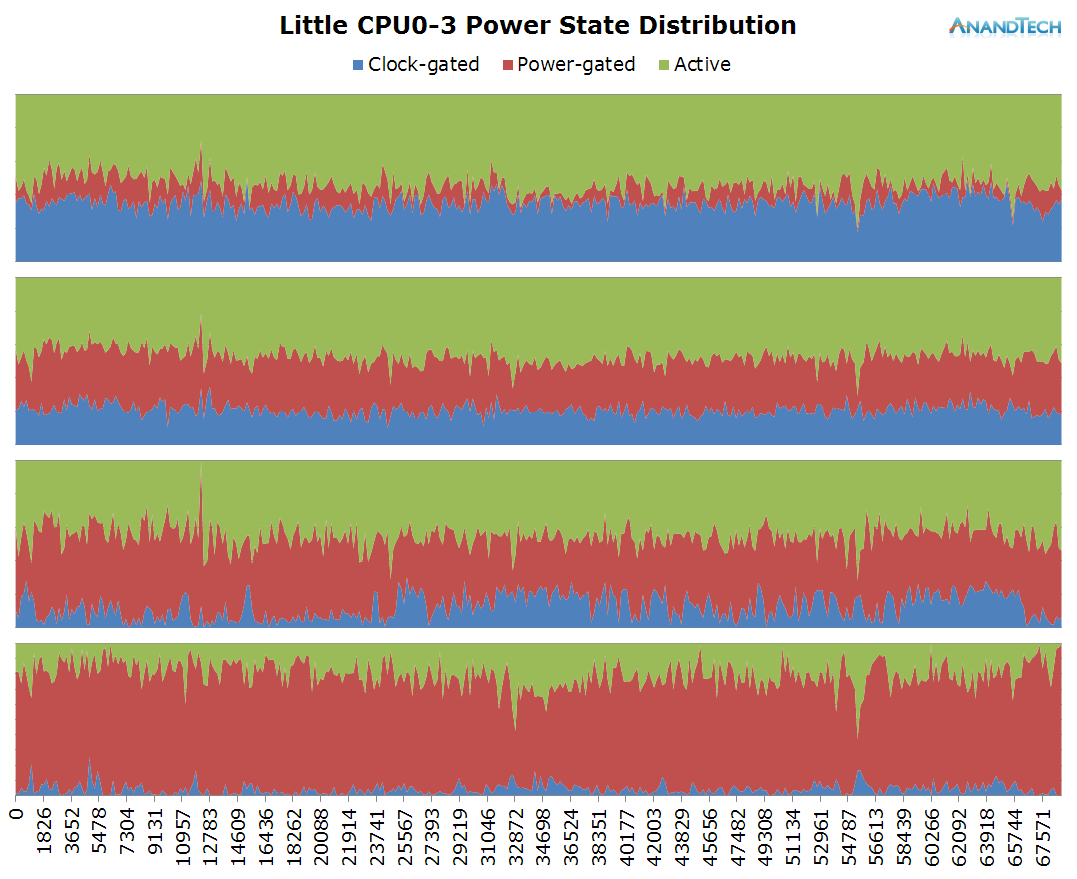


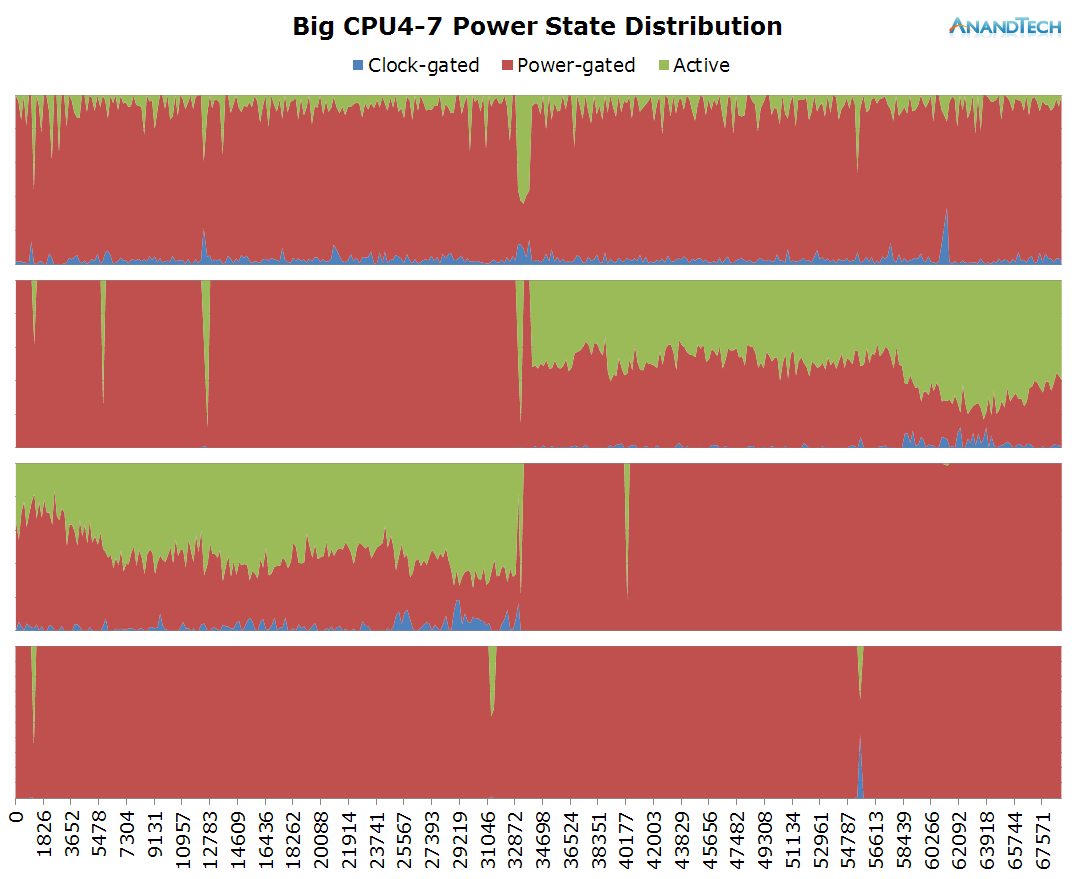
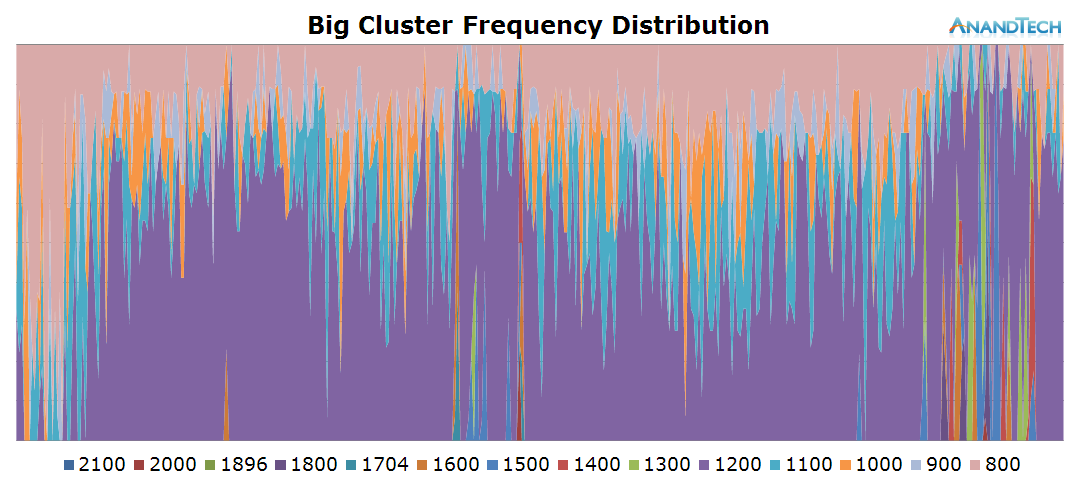
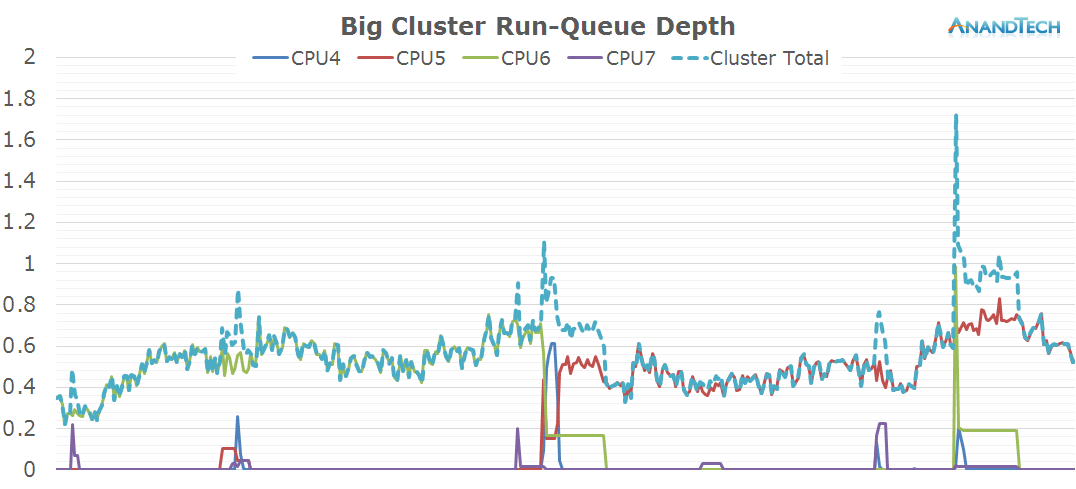
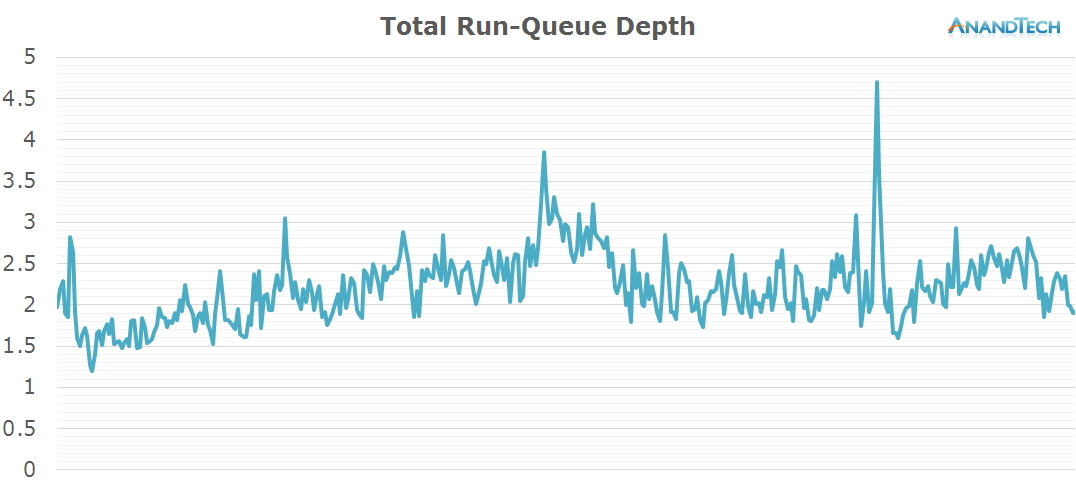








157 Comments
View All Comments
Hrobertgar - Tuesday, September 1, 2015 - link
Your spikes on the video recording appear to be every ~4 secs of video, could the CPU spikes be app / memory related?badchris - Tuesday, September 1, 2015 - link
Thank you for this excited article.And one problem,how do we explain 2 big core Snapdragon 808 is more efficient than 4 big core Snapdragon 810?Andrei Frumusanu - Tuesday, September 1, 2015 - link
You cannot make comparisons between different SoCs even if they have the same CPU IP and the same manufacturing process. The S808 is different from the S810 which are again different from Nvidia's X1 even if all 3 have A57 cores on TSMC 20nm.badchris - Tuesday, September 1, 2015 - link
nvm,i should realize this comparison is not scientific.metafor - Tuesday, September 1, 2015 - link
The S808 and S810 should be fairly similar though. That's not to say you can say that the only difference is the CPU configuration but a similar study on what the behavior is like on a different SoC with fewer cores would be helpful.Threading isn't 100% free and neither is thread migration. It might be good to take a look at just what the S810 is doing over time compared to the S808 in terms of CPU activity.
Andrei Frumusanu - Tuesday, September 1, 2015 - link
I have data on all of that... It's just in need of being published in an orderly fashion.kpkp - Tuesday, September 1, 2015 - link
There are quite few other differences beside the 2 cores, starting with the memory controller.badchris - Tuesday, September 1, 2015 - link
thx for your notice.there're something i forgotnpp - Tuesday, September 1, 2015 - link
As an ex-Android developer I can remember that the SDK not only encourages, but sometimes straight out enforces extensive usage of threads. For example, around API level 14/15, making a network request in the main thread would throw an exception, which may seem obvious to experienced developers but wasn't enforced in earlier versions. This is a simple example, but having the API itself pushing towards multi-threaded coding has a positive effect on the way Android developers build their apps. I'm not sure then why Google's own browser would be surprising for its usage of high thread counts - even a very basic app would be very likely to spawn much more than 4 threads nowadays.Arbie - Tuesday, September 1, 2015 - link
"I was weary of creating this table..."That's not surprising, after all your work ;-).
Terrific article BTW which is up to Anandtech's long-time standards. Seems like a mini master's thesis.